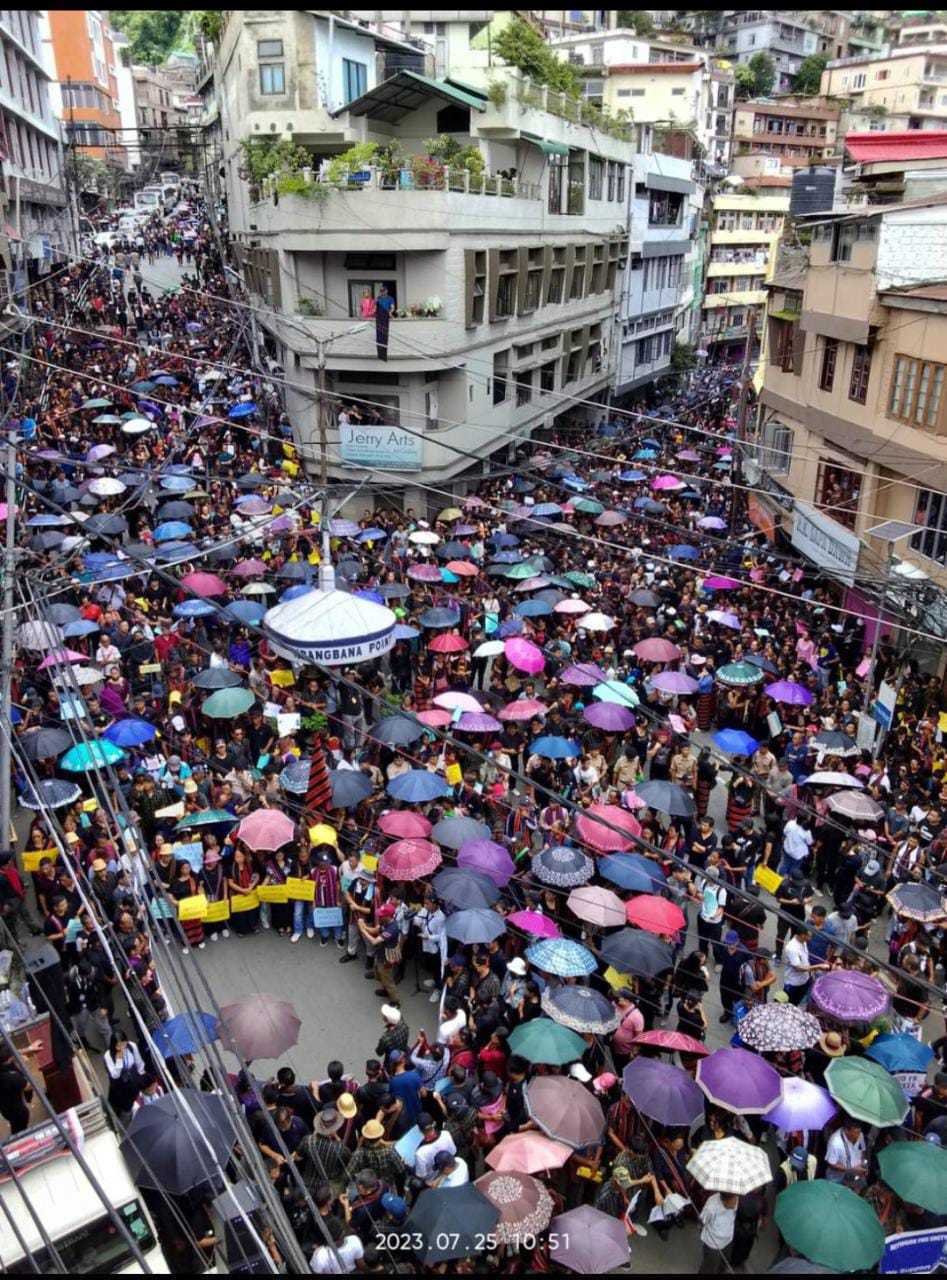A wave of violence in Manipur has left a trail of death and destruction, with the latest incidents resulting in six fatalities and numerous homes set ablaze.
The ongoing unrest, which has already claimed over 180 lives and displaced thousands, has now become a significant factor in a no-confidence motion against Prime Minister Narendra Modi.
Three victims, identified as members of the majority Meitei community, were killed in the Kwakta area of Manipur’s Bishnupur district, The Times of India reported, adding that they had been living in relief camps and were killed the day they returned.
Retaliatory attacks ensued hours later, the media outlet said. Armed men targeted the area’s neighboring villages belonging to the Kuki-Zo community, resulting in two deaths and 13 severe injuries on Saturday.
Another person was killed in the Terakhongsangbi area in Bishnupur district.
The violence erupted in early May following a controversial court order for the state to consider extending special economic benefits and quotas, previously reserved for the tribal Kuki-Zo people, who are predominantly Christian, to the Hindu Meitei population. It would also give the Meiteis the right to buy land in the hills where the Kuki-Zo people live.
Opposition parties, under the newly formed India National Developmental Inclusive Alliance, or INDIA, have accused Modi of “brazen indifference” to the violence, according to Financial Times, which said they have successfully placed a no-confidence motion against Modi’s government on parliament’s agenda, with a vote expected this week.
The governing Bharatiya Janata Party also faces demands for the federal government to dismiss Biren Singh, the Manipur state’s chief minister, and impose direct rule from New Delhi. The Kuki-Zo community have also called for a separate administration on their lands.
The conflict in Manipur, a state bordering Myanmar and home to 3.2 million people, has escalated into a national security crisis.
Analysts warn that the conflict could spread beyond Manipur due to the Kuki-Zo community’s ethnic ties with groups in Mizoram, Myanmar and Bangladesh. The Naga tribal community, Manipur’s second-largest ethnic group, has remained neutral but has expressed concerns about being dragged into the conflict.
The government has deployed about 50,000 soldiers, armed police and other security personnel to enforce buffer zones between the warring communities. Despite these measures, mobs have looted more than 4,000 weapons and half a million rounds of ammunition from police in Manipur, according to official estimates.
The conflict has strategic implications for India, distracting the military in a region that faces border tensions with China.
Last month, the European Parliament passed a resolution urging the Indian government to urgently restore peace in Manipur.
“There have been concerns about politically motivated, divisive policies promoting Hindu majoritarianism, and about an increase in activity by militant groups,” the resolution stated. There are also “accounts of partisan involvement by security forces in the killings have increased distrust in the authorities.”
In response to the resolution, the country’s Ministry of External Affairs criticized the European Parliament, saying the issue was entirely an “internal matter.”
More than 180 people have been killed, mostly from the Kuki-Zo community, in Manipur since the violence started on May 3.
Courtesy of The Christian Post.

